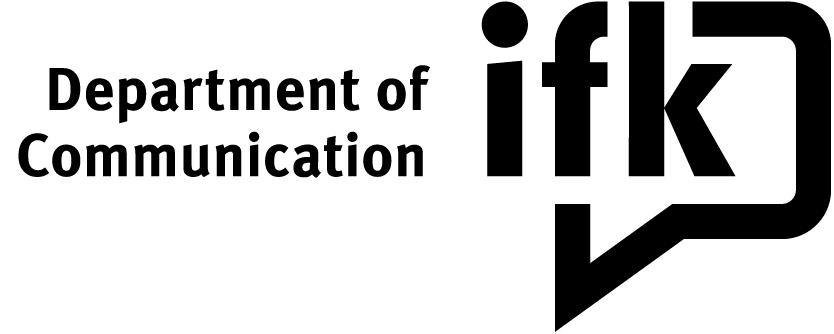

The degree programme in Communication Science teaches methods, knowledge and skills that enable students to work in media and communication professions as well as in applied and academic research. It deals with the conditions, structures, functions and possible effects of media and communication as well as their historical development in society. It is concerned on the one hand with the media and communication-related aspects of public communication, and on the other with the social and individual realities that develop under the influence and use of media and communication. At the IfK, this academic training is complemented by a first practical professional orientation. Media knowledge, methodological skills and the ability to reflect as well as central practical media basics are systematically taught. This provides an essential basis for successful work in the media and communication professions.
The Bachelor's degree programme in Communication Science has a modular structure. These are compulsory modules within which different seminars and seminar topics are usually offered for selection.
In the first year, students are introduced to the fundamentals and central theoretical perspectives of the subject. The media system and its framework conditions are discussed, communication science methods of data collection and analysis are taught, and potential professional fields for communication scientists are presented.
In the further course of the programme, important subject areas of communication science are explored in greater depth. Seminars from the fields of "Society, Public Sphere, Culture", "PR and Advertising Research", "Journalism Research" and "Reception Research" characterise the second year of study and are accompanied by practical research exercises in which current issues in communication studies are empirically addressed. The programme is complemented by practical media courses.
In the third year of study, students become familiar with further social science working methods and techniques and attend additional courses from cooperating neighbouring disciplines, according to their personal interests. The programme concludes with the examination module, in which the bachelor's thesis is prepared and supervised by the supervisor.
Recommended study plan
| 1st year of study (semester 1 & 2) | ||||
| Introductory Module 1 | Methods Module 1 | Media Structures and Media Organisation 1 | Introduction to Academic Working Skills | |
| Introductory Module 2 | Methods Module 2 | Media Structures and Media Organisations 2 | Communication and Media Practice 1 (Part 1) | |
| 2nd year of study (semester 3 & 4) | ||||
| Thematic Module: Society, Public Sphere, Culture | Thematic Module: PR and Advertising Research | Communication and Media Practice 1 (Part 2) | ||
| Thematic Module: Journalism Research | Thematic Module: Reception Studies | Practice in Research (Part 1) | ||
| 3rd year of study (semester 5 & 6) | ||||
| Communication and Media Practice 2 | External Module 1 | External Module 2 | Practice in Research (Part 2) | |
| General Studies | External Module 3 | External Module 4 | Examination Module | |

